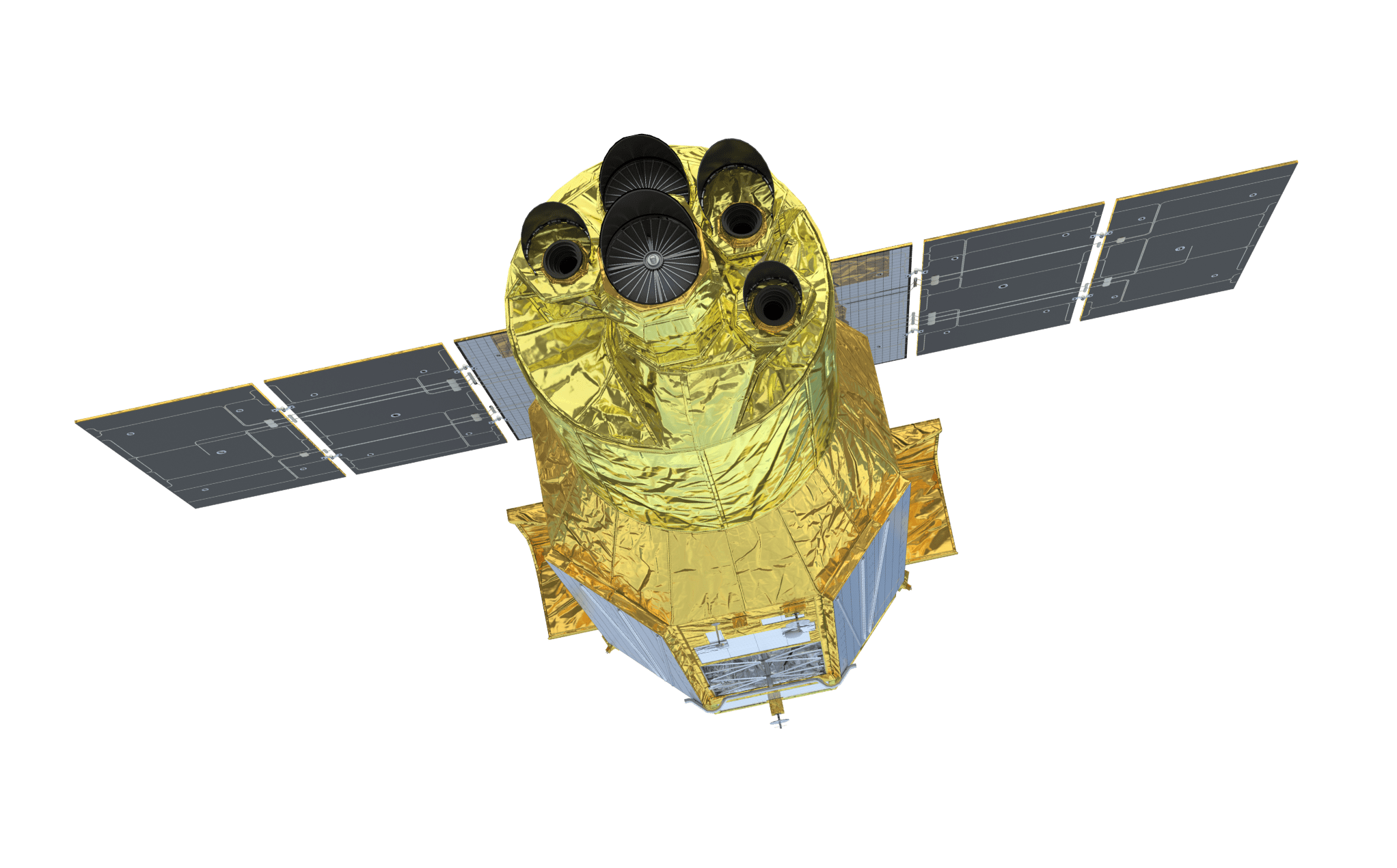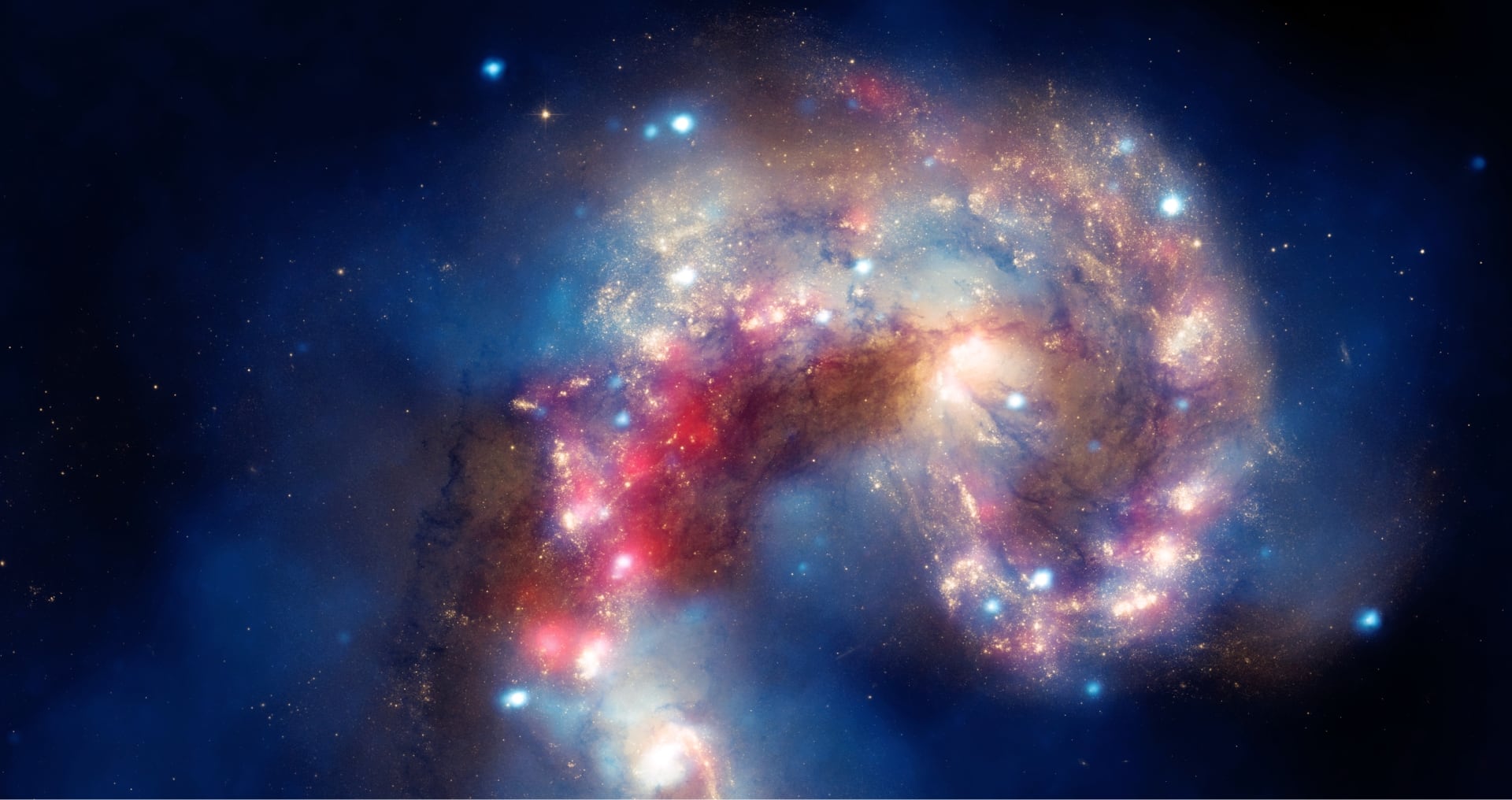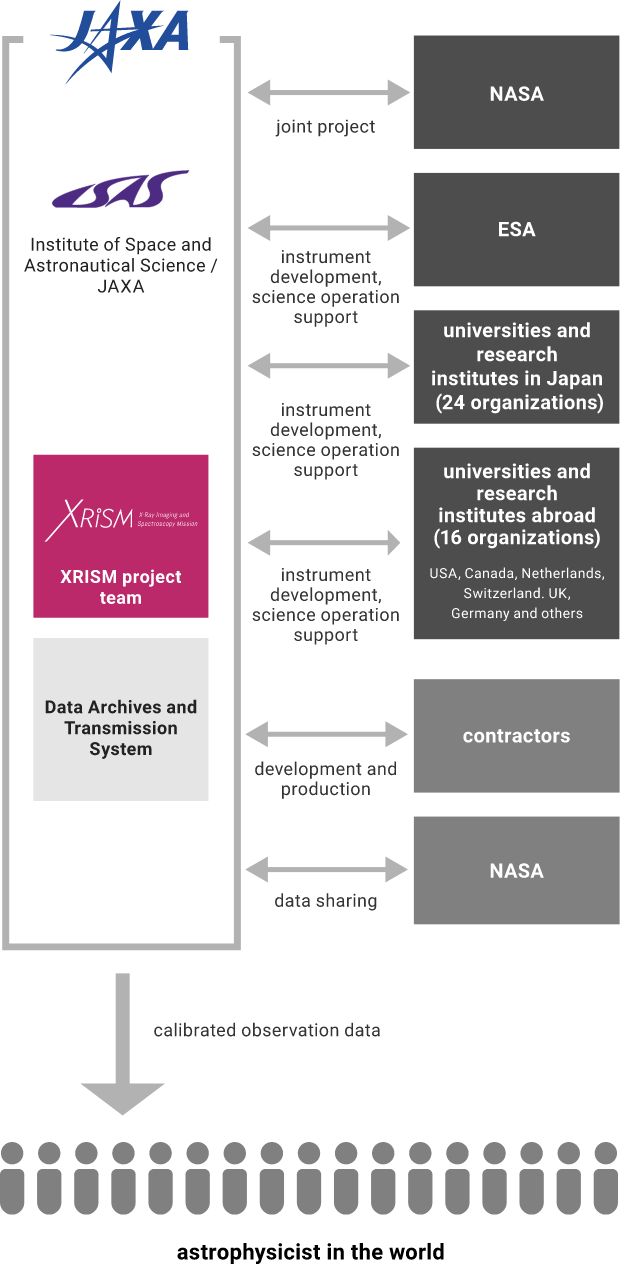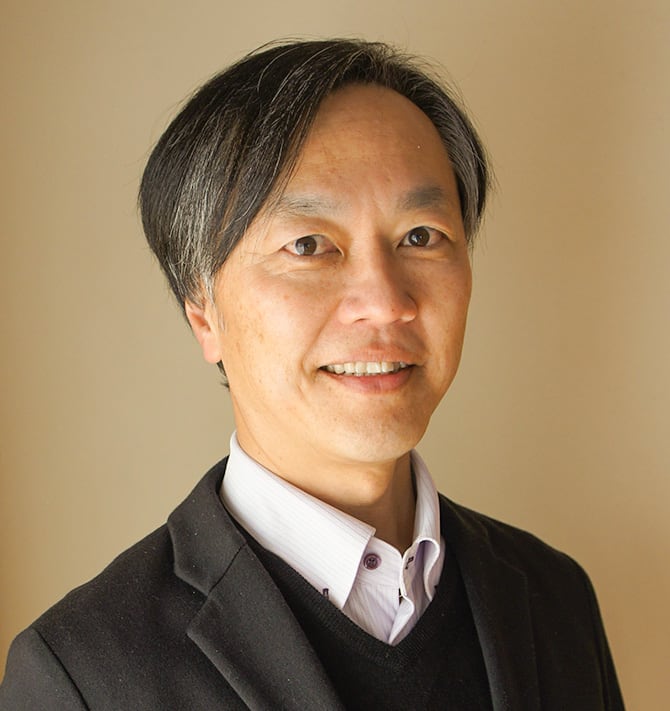Project

Message
Development Plan
The project is progressing to open up a new world of high resolution X-ray spectroscopy in the early 2020s.
- 2017
- project study
- 2018
- start project, basic design/ detailed design
- 2019
- detailed design/ production and test of instruments/ spacecraft assembly
- 2020
- spacecraft assembly/ proto flight test
- 2022
- proto flight test/ launch campaign
- 2023
- Lift-off


List of participating institutions
XRISM was developed under an international collaboration of JAXA, NASA, and ESA. With NASA’s close cooperation, this project has advanced as a joint project. In addition to the three space agencies, more than 100 astrophysicists and experts from universities and research institutes from Japan, the United States, and Europe have joined to contribute to the satellite development, development of observation instruments and data processing software, and to further formulate the scientific observing plan.

- JAXA(Japan Aerospace Exploration Agency)
- NASA(National Aeronautics and Space Agency)
- ESA(European Space Agency)
- Tokyo Metropolitan University
- Kanazawa University
- Kanto Gakuin University
- University of Miyazaki
- Saitama University
- Neitherlands Institute for Space Research
- University of Geneva
- Canadian Space Agency
- Gravitation AstroParticle Physics Amsterdam
- Canadian Light Source Inc.
- University of Chicago
- Chuo University
- University of Durham
- Ehime University
- European Sauther Observatory
- Fujita Health University
- Harvard-Smithsonian Center for Astrophysics
- Hiroshima University
- Kindai University
- KONAN University
- Kwansei Gakuin University
- Kyoto University
- Lawrence Livermore National Laboratory
- Leiden University
- University of Maryland
- Massachusetts Institute of Technology
- University of Michigan
- Nagoya University
- Nara University of Education
- Nara Women’s University
- Nihon Fukushi University
- Osaka University
- RIKEN
- Rikkyo University
- Saint Mary’s University
- Shibaura Institute of Technology
- Shizuoka University
- Tohoku Gakuin University
- University of Tokyo
- Tokyo University of Science
- Waseda University
- University of Waterloo
- University of Wisconsin
- Yale University
Member
Development team and leaders
- Hironori Maejima
- Project Manager
- ISAS/JAXA
- Makoto S. Tashiro
- Principal Investigator
- ISAS/JAXA, Saitama University
- Kenichi Toda
- Project Engineer
- ISAS/JAXA
- Kyoko Matsushita
- Project Scientist
- Tokyo University of Science
- Hiroya Yamaguchi
- deputy Project Scientist
- ISAS/JAXA
- Lillian Reichenthal
- Project Manager
- NASA/GSFC
- Richard Kelley
- co-PI
- NASA/GSFC
- Leslie Hartz
- Mission Systems Engineer
- NASA/GSFC
- Robert Petre
- Mission Scientist
- NASA/GSFC
- Brian Williams
- Project Scientist
- NASA/GSFC
- Matteo Guainazzi
- Project Scientist
- ESA
- Elisa Costantini
- deputy Project Scientist
- SRON
Resolve
- Yoh Takei
- Instrument Manager (JAXA)
- ISAS/JAXA
- Yoshitaka Ishisaki
- Instrument PI (JAXA)
- Tokyo Metropolitan University
- Ryuichi Fujimoto
- Instrument sub-PI (JAXA)
- Kanazawa University
- Joy Henegar-Leon
- Instrument Manager (NASA)
- NASA/GSFC
- Richard Kelley
- Instrument PI (NASA)
- NASA/GSFC
- Gary Sneiderman
- Lead Instrument Systems Engineer (NASA)
- NASA/GSFC
Xtend
- Hiroshi Tomida
- Instrument Manager
- ISAS/JAXA
- Koji Mori
- Instrument PI
- Miyazaki University
- Hiroshi Nakajima
- Instrumet deputy-PI
- Kanto Gakuin University
- Kiyoshi Hayashida
- Former Instrument PI
- (Osaka University)
Science/Mission Operations
- Yukikatsu Terada
- Science Operation Center Lead (JAXA)
- Saitama University
- Matt Holland
- Science Data Center Lead (NASA)
- NASA/GSFC
- Shin Watanabe
- Mission Operations Lead
- ISAS/JAXA
In Flight Calibration Planning
- Eric Miller
- Lead
- MIT
- Makoto Sawada
- co-Lead (NASA)
- Rikkyo University
Laboratory Astrophysics
- Timothy Kallman
- Chair
- NASA/GSFC
- Jelle Kaastra
- Vice Chair
- SRON
Science target category
- Chris Done
- Galactic Compact chair
- Durham University
- Teruaki Enoto
- Galactic Compact co-chair
- Kyoto University
- Aya Bamba
- Galactic Diffuse chair
- University of Tokyo
- Lia Corrales
- Galactic Diffuse co-chair
- University of Michigan
- Yoshihiro Ueda
- Extra-Galactic Compact chair
- Kyoto University
- Erin Kara
- Extra-Galactic Compact co-chair
- MIT
- Irina Zhuravleva
- Extra-Galactic Diffuse chair
- University of Chicago
- Yutaka Fujita
- Extra-Galactic Diffuse co-chair
- Tokyo Metropolitan University
(As of June 2023)
Science Member
Link to Science Members’ List
Media Kit
-
Media Kit (August, 2023)
PDF [9.6 MB]
- Home
- Project


